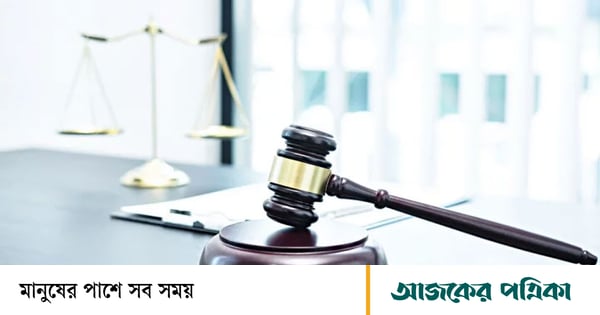On February 13, 2001, Awami League party MP Dr. against the strike called by BNP. A procession was taken out under the leadership of HBM Iqbal. BNP's march in favor of the hartal and the march led by Iqbal against it met at Malibagh intersection.
Four workers of BNP were killed when they fired from Awami League procession. The deceased are Jasimuddin, Khokon, Abdur Rashid Mollah and Nazma Akhtar.
Later, Yunus Mridha, the then president of Khilgaon Thana BNP filed a case as the plaintiff. On December 29, 2002, 24 persons including HBM Iqbal-Shaon were charged in the judicial court.
Later, after the Awami League came to power, on August 17, 2009, the Ministry of Home Affairs recommended the withdrawal of the names of 15 people including Iqbal-Shaon from this case. Following this, the court of Speedy Trial Tribunal-1 of Dhaka acquitted 15 accused on August 26 and September 29, 2010.
After the change of pot on August 5, the plaintiff in that case, the then president of Khilgaon Thana BNP, Yunus Mridha, applied to the High Court seeking cancellation of the two orders of 2010.
On November 6, Justice Md. Mostafizur Rahman and Justice Md. Sagir Hossain's high court bench former parliament member of Awami League. HBM suspended the release order of 15 people including Iqbal and Nurunnabi Chowdhury Shawon. They have also been ordered to surrender to the judicial court immediately.
The other accused are – Shaukat Hossain, Kabir Uddin Ahmed, Abdus Salam, Munsi Kamruzzaman Kajal, Moniruzzaman alias Liton, Imdadul Haque alias Bachchu, Abdul Halim, Abul Bashar, Jasim Uddin, Dulal alias Laundry Dulal, Tarek Samchhul Khan, Kamrul Morshed and S.M. Arman.
The lawyer was in favor of the application. Aminul Islam. After the order, he told reporters, 'The police and the victim Yunus Mridha had filed separate cases in connection with the shooting at the BNP rally. In two cases, 15 persons were acquitted while the cases were pending before the speedy trial tribunal after the charge sheets were issued. However, the case against the rest is ongoing.
Lawyer Aminul Islam said, 'after the change of pot on August 5, the plaintiff Yunus Mridha appealed to the High Court challenging the two orders of 2010 (exemption of 15 people). The High Court issued a ruling suspending the operation of the two orders. And ordered 15 accused to surrender. Now the trial will continue against 15 people in the case.
This case shows that in a criminal case, even if an accused is acquitted by the court, he is not completely free from danger. His danger remains somewhat. However, if the accused is acquitted after framing charges in a criminal case, he is free from danger.
All judicial proceedings relating to a criminal case are completed by Magistrate Courts and Sessions Courts. Criminal cases are usually filed in 3 ways. Namely:-
One. Police Cases (G. R. Cases)
Two. Complaint Case (C.R. Case)
Three. Non-G. And the case
Among these, police cases are cognizable offenses under the Criminal Procedure Code. And non-G. And the case is an indictable crime. Complaints can be both actionable and nonactionable. Police don't want to take case if it's illegal. In such a situation, the complainant files a case directly with the court/magistrate.
The case whatever the nature of the case shall be tried by the Court of Magistrate subject to the power of the Magistrate to punish under Section 32 of the Code of Criminal Procedure. Sessions Courts try cognizable offenses under Section 193 of the Penal Code when the Magistrate sends the accused to the Sessions Court.
Acquittal: In a criminal case, before the charge is framed, if the court finds that the charges brought against the accused are baseless or there is no evidence against him, the acquittal is called acquittal.
Consequences of Acquittal: An accused acquitted in a criminal case may be charged in the same case later, if evidence is subsequently found against him. Then if the charge is proved beyond doubt then the prescribed punishment can be given as per law. But if the charge is not proved beyond reasonable doubt after taking the evidence, the accused is acquitted.
Consequences of acquittal: The general principle of law is that if a person is acquitted, he cannot be charged again in the same case and the convict cannot be convicted. In this context, it is stated in Article 35 (2) of the Constitution of Bangladesh, 'No person shall be charged and punished more than once for the same crime.'
Section 403 (1) of the Code of Criminal Procedure provides that 'a person accused of an offense shall not be tried again for the same offense if he has been tried by a court of competent jurisdiction and convicted or acquitted.'

